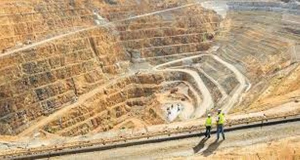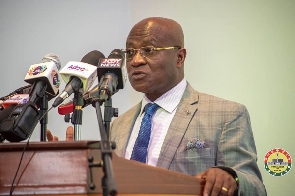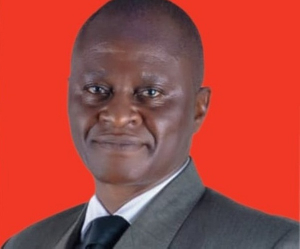Dr Frank Bannor, the Head of Research at the Danquah Institute, has called for the establishment of a Mining Development Bank to adequately resource indigenous small-scale mining companies to advance the progressive growth and development of the sector.
He said such a bank was required to provide soft and affordable loans and other credit facilities to indigenous miners and mining companies, to position them well to contribute to significant economic growth and development.
Dr Bannor observed that the contributions of mining companies to the nation’s economy remained unparalleled, saying the sector recorded the highest growth in the third quarter of the year.
The small-scale mining sector played a crucial role in achieving a growth rate of 9.3 percent, Dr Bannor, also lecturer at the Ghana Institute of Management and Public Administration (GIMPA) stated.
He was speaking to the media on the sidelines of an Economic Symposium organised by the ABC Newspaper in Sunyani, aimed at educating the public on the nation’s economy.
Dr Bannor said the nation had a gold reserve valued at $10 trillion, saying it was imperative for the government to increase participation of indigenous small-scale mining companies, so that the government could purchase direct from the companies.
That would greatly enhance the gold purchasing programme, he stated, adding it was unfortunate that multinational corporations that often prioritised their needs and investments had dominated the mining sector.
Dr Bannor said providing adequate financial and other resources to indigenous mining companies would enable them to access the necessary expertise and capital.
That would further transition small-scale to large-scale mining operations and thereby enhance responsible mining practices that could possibly reduce environmental damages including pollution of river bodies and destruction of forest reserves.
Dr Bannor said by increasing gold production through indigenous mining companies, the government could potentially utilise the gold for purchasing goods and services without relying heavily on foreign currency reserves.
Dr George Domfe, Development Economist, and a Senior Research Fellow at the Centre for Social Policy Studies, University of Ghana, said the country had made significant progress in terms of per capita income since 2016.
In 2016, the per capita income was recorded at $1,900, however, it had now risen to $2,200, he stated, adding the “increase indicates the country is faring better economically”.
Despite the economic growth, not everyone is experiencing the benefits because of the current inflation rate which stood at 20.3 percent, Dr Domfe admitted.
Nonetheless, he added that “on average the overall circumstances in the country are more favourable now than in 2016”.
Gordon Asare-Bediako, the Managing Editor, ABC Newspaper highlighted the critical role of the economy in the nation’s development agenda, saying it was therefore essential to gather experts for analysis and current trends and to present a comprehensive overview of the state of the economy.
Business News of Monday, 30 September 2024
Source: GNA

















